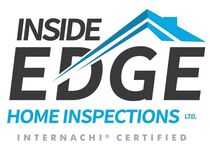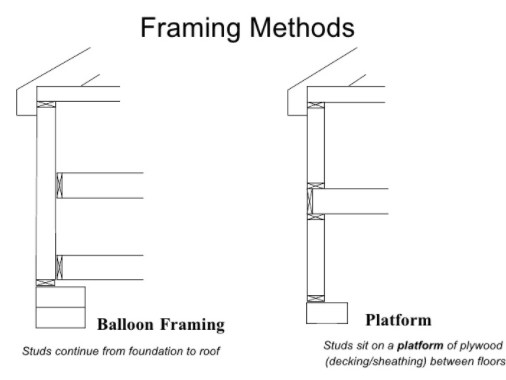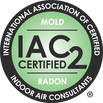Mike's Home Inspector BlogMichael Burfitt |
|
It’s no secret that 2021 was a tough year in the Home Inspection industry, especially in the Halifax area. With the sharp increase in competition for home buyers, many have chosen to waive the inspection contingency when purchasing a home. Needless to say, skipping the home inspection is a B-A-D idea and while not the ideal solution, I do offer walkthrough consultations and strongly encourage post-sale inspections. If you are a first-time homebuyer, it is especially important to know what to expect in the coming years and plan accordingly as homes require a maintenance plan to avoid costly and disruptive issues.
When I was in the planning stages of starting my company and before the COVID-19 pandemic, I wanted to know the reasons why the services of a professional home inspector were not being considered. I found that many people have had bad experiences in the past with home inspectors that were lacking in either technical or communication skills. There is also much misunderstanding amongst new homeowners as to the value of having a home inspection and what exactly a home inspection entails. Here are a few of the more common criticisms I hear and my thoughts on them. Home Inspectors are More Interested in Staying on the Good Side of Agents Ask any inspector and they will deny this conflict of interest, but my experience has shown that this, unfortunately can happen. I have heard other home inspectors openly worry about being labelled a “deal killer” or “alarmist” or otherwise getting on the bad side of an agent or brokerage firm. While I personally am always happy to get positive referrals from anyone, including local agents, the bottom line is that I built our company's reputation as your source for trusted, unbiased and independent home inspections and home related information above all else. Simply put, any real estate agent or organization who expects me to compromise our integrity to push through a deal by writing a "soft" report is looking at the wrong company. Just Hire an Electrician, Plumber, Roofer, and Structural Engineer While some inspectors do occasionally come from these various backgrounds, it is safe to say as a general rule, home inspectors are not electricians, plumbers, roofers or engineers. It is true that collectively hiring from 1 of each of these 4 specialties will indeed yield a more in-depth inspection into arguably the four most important parts of a home. Realistically, it is extremely unlikely to coordinate these four separate trades all at the same time, often with short notice, often on the weekend and at a price that is affordable to the average homeowner. A home inspection is the best value for your money as a good overall introduction or assessment of your home. Home inspectors are both generalists and big picture thinkers and see a home as a system of interdependent components that no specialist can match. I Can’t Trust Nova Scotia Home Inspectors: There Are No Regulations! Stating that Nova Scotia has zero home inspection regulations is 100% true and has been a topic I have written about previously. There has been no shortage of people who have tried their hand unsuccessfully at home inspections both in our province and across North America. Some of these home inspectors have no recognizable qualifications or relevant experience and are masquerading as experts, hurting the overall reputation of our industry. Home Inspectors have one of the highest failure rates of any profession because it quickly becomes apparent, while a fun and rewarding career, that home inspectors do a job that is mentally and physically challenging, requires wearing a wide variety of metaphorical hats and is NOT, in any way, a path to easy money! So how do you know you can trust your inspector to do a great job and provide maximum value? While there is no shortage of trustworthy, thorough, and knowledgeable home inspection companies in our area, I can only speak for my own organization. Inside Edge Home Inspections Ltd. was not an idea I thought up overnight but was the result of over 3 years of careful and meticulous planning. I knew nobody should be expected to pay for someone who still has significant gaps in their knowledge base so that is why I made sure I had an extensive knowledge and experience before launching: as the saying goes you only get one chance to make a first impression and I wanted to make sure our company’s reputation was excellent right from the start. Our website details my extensive background and why I am suited to be considered a highly skilled home inspector, with no need to worry about whether calling Inside Edge is the right decision for you. I was recently looking through my blog archives and noticed I have nothing written on building framing. This is no coincidence: I have seen a lot of home issues but generally do not run across problems with framing. Homes are built using clear building codes and my concerns are usually limited to looking for signs of DIY structural repairs after the home is built. This is especially a concern to me when I see the large number of TV shows promoting “open concept” homes and making it look as simple as swinging a sledgehammer and hauling off the old building materials, but I digress. There are a number of ways homes can potentially be framed with wood but there are two main types in North America: balloon framing and platform framing. What is the difference between the two and why does it matter? The simple answer is that balloon framing goes directly from the foundation up to the roof with the floors put in later while platform framing is built one floor at a time, in other words, each floor is independent of each other. While balloon framing was the most common construction method up until the 1940s, it has been almost completely replaced with platform framing. There are a number of reasons for this:
As an inspector, I am most concerned about the last point. One of the main drawbacks of balloon framing is that it does not have a fire separation between floors. The main reason balloon framing went out of style is because a fire can travel quickly in the wall cavity, and this has caused a series of devastating house fires that spread rapidly from basements to bedrooms. That’s not to say balloon framing is automatically bad: they have better wind and shrinkage resistance and there are no joints in the exterior studs and while expensive, fire protection can be added. Unfortunately, this is not something most home inspectors can verify as we do not engage in destructive or invasive inspections (both types look identical on a finished home) but is something to keep in mind. As a general rule of thumb, a house that is less than 70 years old is likely made with platform framing and anything over 80 years old is almost certainly constructed with balloon framing. Being a professional home inspector means there is never a time where you can say that the learning stops and you know everything. If I haven't made it clear through my credentials, I have an insatiable appetite for growing my understanding of all things home related that was fostered both through my late Grandfather (possibly the most skilled carpenter I have ever known) and 14 years at working with NSCC. My education continues to this day as can be seen clearly in the photo above: I especially like to learn more about topics that are only lightly touched upon in the formal home inspector programs: one such topic is marijuana grow-ops.
As everyone is well aware, marijuana has been legal in Canada for a while now and while still technically illegal throughout the entire United States, in reality as of 2021 only 5 out of 50 states have a full ban on it. One of the consequences of this is a drastic decrease in the black market and a corresponding drop in houses that are used to grow large quantities of cannabis illegally. It goes without saying that former growers generally do not advertise what the home was used for in the past and it can be difficult to identify a house that was used as a grow-op. There are a number of reasons why it is critical to know if the home was used as a grow house aside from insurance and mortgage issues:
I remember way back when I worked in home improvement retail how it was emphasized over and over that there is no ‘profile’ of a shoplifter, and the 'average' thief could look like literally anyone from any background, culture, gender or age. This is a good analogy for grow-ops: contrary to the stereotype that drug houses are run down, dirty and scary looking they can just as easily be your neighbour with a clean, well-maintained property. Grow-ops were generally designed to blend in to not attract attention and this is the reason it is important to know the signs and keep an eye out for clues that a home might have been used for nefarious purposes in the past. These are numerous and include:
I should point out that a house can have all these signs and more and simply have nothing more than easily fixable insulation problems. Even poor electrical or plumbing work is merely a clue that causes me to look closer not loudly and immediately proclaim that I found a drug house. It can be extremely difficult to identify a former grow-op that has been covered up but an inspector can point out many areas that suggest a high likelihood of a past that is far from advertised. |
Archives
July 2024
Categories
All
|
|
Inside Edge Home Inspections Ltd.
Halifax, NS 902-209-9921 [email protected] Proudly Serving the HRM & Central Nova Scotia |



 RSS Feed
RSS Feed

